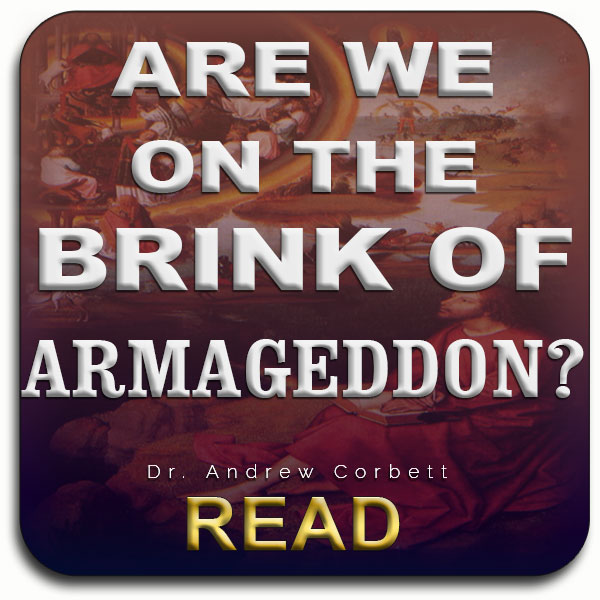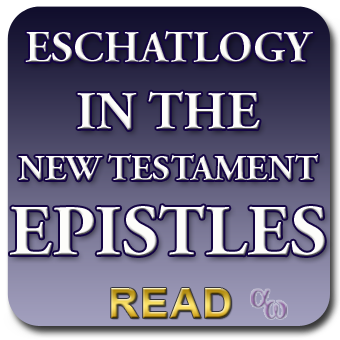by Andrew Corbett | Jun 11, 2023 | Eschatology |
In Professor Stuart Piggin’s seminal work on the Evangelical history of Australia, The Fountain of Public Prosperity, he argues that it was the rise of ‘pre-millennialism’ eschatology that gave much impetus to the Evangelicals successful evangelism. Evangelical evangelists of the mid-1800’s were preaching that Christ’s return – and the end of the world – was imminent. But their pre-millennial gospel was also ‘pre-tribulational’ – which meant that the urgency to turn to Christ in repentance was even more urgent, otherwise Christ’s “secret return” (‘the rapture’) could leave the unrepentant in the midst of a hell-on-earth “Great Tribulation”. This new evangelistic message gained much traction and many converts. It would be a popular evangelistic message up until the latter part of the twentieth century. Pragmatically, it was a popular because it worked! But like many (unexamined) good ideas, it has had unintended negative consequences.

by Andrew Corbett | Oct 13, 2018 | Book of Revelation |
Armageddon? Some say it’s just about to happen. But what does the Bible say about it? Whenever things flare up in the Middle East, especially involving Israel, there are always people who speculate that Armageddon is about to happen. The word “Armageddon” has now become synonymous with “the final battle that ends the world”. So ubiquitous has the word become for the end of the world that Hollywood have titled blockbuster films with it, fictional books have been written about it, and media commentators now refer to it as the catch-all word to describe the level potential fall-out from a Middle Eastern battle.
This is all very staggering considering that it occurs only once in Scripture, in the Book of Revelation, and is not alluded to anywhere else. Added to this is…

by Andrew Corbett | Apr 5, 2018 | Eschatology |
New Testament epistles are sprinkled with eschatological references which have led to confusion and the belief that the rules of hermeneutics must be re-written to accommodate particular eschatological systems. We will now survey how these Epistles make eschatological references and how we might best understand them.
A Sense of Imminence
¶ The end of all things is at hand; therefore be self-controlled and sober-minded for the sake of your prayers.
First Peter 4:7
The eschatology found in the New Testament Epistles conveys an expectation of imminence. Each of the writers had a sense that something was about to happen very soon. It could be argued that they were misguided and that the Scriptures accurately recorded their misinformed views. We see evidence of this sort of thing throughout the Old Testament where misinformed human perspectives were accurately recorded in God’s inspired Word. This includes such statements like, “from the rising of the sun” (Psalm 50:1; Isaiah 45:6; Malachi 1:11). Of course, we know that the sun doesn’t rise but from the perspective of the human authors it appeared to. But this doesn’t seem to be the sort of thing happening in the Epistles. Unlike the genre of the Psalms or Prophets, these eschatological statements found in the Epistles are not poetic. They are presented as statements of fact – often linked to an injunction (1Peter 4:7; Hebrews 10:24-25). If it is the New Testament perspective is actually just the accurate recording of misguided human opinion, it then makes the linked injunctions (moral commands) redundant.

by Andrew Corbett | Mar 12, 2018 | Bible Prophecy |
For example, some time ago I was lecturing in a closed country on the topic of Hermeneutics (how to interpret the Bible) when one student asked me about the ‘Third Temple’ supposedly prophesied in the Bible as a sign of the last days immediately preceding Christ’s return. This student had innocently adopted an end-times-guess (adiaphora) as if it was a Biblical idea. My question in response to her question was which text in the Bible was she basing her question? She looked at me stunned! She thought I was playing some game with her. “Of course the Bible prophesies that the Temple will be rebuilt in the Last Days in order to usher in the return of the Lord!” she responded. Again I asked her – “Where?” I have asked this question in lectures in several countries and have never been shown where the Bible prophesies such a last days rebuilt (Third) Temple!

by Andrew Corbett | Dec 29, 2011 | Christology, Eschatology |
Take a Bible College Course on Jesus Christ (called “Christology”) and eventually you will study the incarnation of Christ and explore how His Divine and Human natures formed a union. The mystery of how God became man is further magnified when it is supposed that although Christ possessed all of the Divine attributes (immutability, eternality, omniscience, omnipresence, omnipotence) He was at times not utilizing His Divine nature and instead speaking from His limited Human nature. In this way, it is argued, Christ was actually ignorant of certain things. The most common proof-text to support this doctrine is Matthew 24:36.





